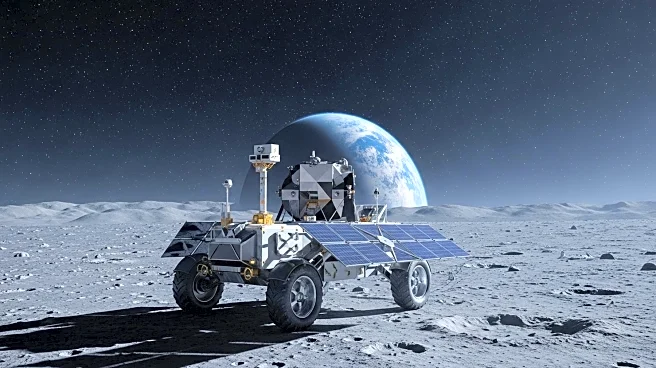What's Happening?
The Senate Commerce Committee held a hearing to address concerns about the U.S.-China space race, focusing on the potential risk of losing lunar dominance to China. Committee Chairman Sen. Ted Cruz emphasized the importance of NASA's Artemis program in maintaining American leadership in space exploration. Witnesses, including former NASA Administrator Jim Bridenstine and other space experts, highlighted China's advancements in lunar mission technologies and warned that delays or budget uncertainties could drive international partners towards China. The hearing underscored the need for continuous operations in low Earth orbit and the development of the Gateway space station to support sustainable lunar exploration.
Why It's Important?
The outcome of the space race has significant implications for international policies, alliances, and the global economic landscape. If China establishes a presence on the moon first, it could set the rules for lunar resource governance and international partnerships, potentially leading to a global realignment. The Artemis program is seen as an economic engine, with NASA estimating a substantial return on investment for the U.S. economy. Maintaining leadership in space is crucial for national security and innovation, and failure to do so could weaken U.S. influence and drive partners towards China's space initiatives.
What's Next?
The hearing highlighted the urgency of reaffirming NASA's commitment to the Artemis program and the Gateway space station. Lawmakers and experts stressed the need for a unified national strategy that integrates civil, commercial, and defense space efforts. The committee is expected to continue discussions on NASA's budget priorities, balancing exploration goals with scientific missions. The success of the Artemis program and the development of SpaceX's Starship as the Human Landing System are critical to achieving the U.S. goal of landing astronauts on the moon by 2027.
Beyond the Headlines
The hearing revealed deeper concerns about the consistency of U.S. space policy, which has been affected by changes in administration. Experts argued for a long-term strategy that avoids fragmented efforts and sets clear goals for future missions, including a crewed mission to Mars. The potential shift in global alliances and economic interests towards China if it wins the moon race underscores the strategic importance of maintaining U.S. leadership in space.









